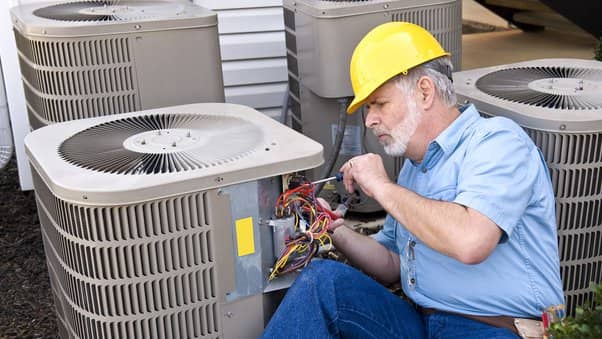
If an installation expert wants to provide a client with an accurate quote for AC installation, they need to visit the home in person. There are several factors to consider before putting up a new air conditioning system.
The reason for this is the sheer number of variables involved. Installing central air conditioning requires extensive planning, and the best way to achieve that is to have a representative from the HVAC company come out to the house and provide a free in-home examination.
HVAC System
Selecting an appropriate system is the primary factor in determining the final cost of a new air conditioning installation. Most HVAC companies provide many cooling system alternatives for your home.
Any conventional air conditioner, heat pump (https://www.energy.gov/energysaver/heat-pump-s), geothermal HVAC system, or ductless system may be installed.
An exact estimate of the cost to install an air conditioning system in your house depends on a number of factors, including your choice of equipment.
Comparison of Systems Based on SEER and Size
The cooling system’s efficiency rating is one possible distinguishing factor between various models. Air conditioning installation costs might range from free to many hundreds of dollars.
To illustrate, let’s say you’re thinking of replacing your current HVAC with a brand-new one so that you can keep your house at a constant, pleasant temperature all year round.
The seasonal energy efficiency ratio (SEER) rating is one metric that may be used to compare different models of cooling systems.
As of right now, the best energy-saving unit available has a SEER rating of just 14. However, it has the potential to reach a rating greater than 20 SEER.
The price of a Trane heat pump will vary depending on its seasonal energy efficiency ratio (SEER), thus if two individuals choose to purchase the same size heat pump but one is a 14 SEER while the other has an 18 SEER, they will pay different amounts.
Generally speaking, the greater the SEER rating, the more efficient the system will be. Also, the higher the potential savings on your monthly energy expense.
You and your comfort professional will examine SEER, or Seasonal Energy Efficiency Ratio. However, the level of efficiency of your system is ultimately up to you and the goals you set for it.
It’s also possible that the HVAC system’s capacity has a role in these variations. Obviously, a load evaluation is necessary if you want to know for sure that the system size you’ve chosen is appropriate.
The larger the system needed to power your house, the higher the expense. Bigger heating and cooling systems are not necessarily always better. Therefore, if you want the most comfort in your house, make sure the system is the right size for the room.
Ductwork
The ductwork in your home is another factor that can affect how much it will cost to install an air conditioner. There’s no use in purchasing an expensive new air conditioner if your home’s ducts are in poor condition.
If your ducts are letting in too much outside air, your HVAC system will have to work harder to compensate for the loss of conditioned air.
Your home’s comfort level may then actually decrease as your energy expenditures rise, and this might have an impact on your budget.
The professional AC installer who comes to your home to give you an estimate on a new air conditioner may also inspect your home’s duct work at the same time.
It’s possible that the cost of a new ac unit installation may go up if it turns out that the duct work for your home has to be upgraded as well.
Repairing or replacing a small section of your ductwork vs the whole system will result in different costs. If it’s only a fraction, it’ll be more affordable.
Multiple variables will determine the final cost to install an air conditioner. The kind of air conditioner, its efficiency, its size, and the home’s pre-existing ducting are all variables to consider.
As said, before you can acquire an accurate price for a new air conditioning system, you need a skilled professional to inspect your property.
